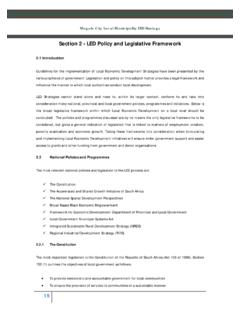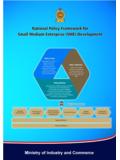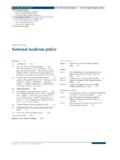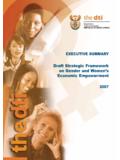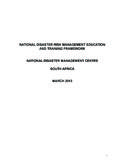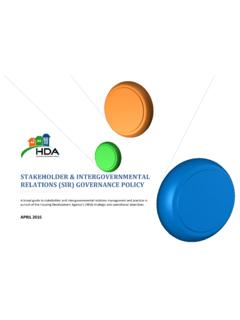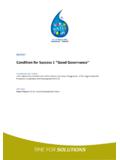Transcription of Recognising and supporting care relationships
1 Recognising and supporting care relationships A Department of Human Services policy framework aaaaaaaaa Recognising and supporting care relationships A Department of Human Services policy framework Portfolio Services and Strategic Projects Division Department of Human Services Published by the Victorian Government Department of Human Services Melbourne, Victoria July 2006. Copyright State of Victoria, Department of Human Services, 2006. This publication is copyright, no part may be reproduced by any process except in accordance with the provisions of the Copyright Act 1968. Authorised by the State Government of Victoria, 50 Lonsdale Street, Melbourne.
2 This document may also be downloaded from the Department of Human Services website at: Printed by GT Graphics, 34 Stanley Street, Collingwood, 3066. (0190606). Recognising and supporting care relationships iii Ministers' foreword Caring relationships between parents, children, partners and siblings are part of our common humanity. We generally take these relationships for granted. It is only when one party has a disability, a disabling short or long term condition (such as mental illness) or becomes frail that the naturally private relationship requires government recognition and support. Recognising and supporting care relationships acknowledges that while government cannot legislate for love or friendship, it should and does provide supportive programs and services.
3 These interventions need to be based on the explicit recognition that caring relationships within inclusive communities are essential to the health and wellbeing of all Victorians. This policy framework builds on the many initiatives and innovations across the Department of Human Services that already recognise caring as a dynamic relationship between at least two people who both have individual needs and rights, rather than as a burden. The framework is designed to enhance and take forward an integrated approach that responds to the diverse and complex nature of care in contemporary society. Taking care of one another is a core feature of building a fairer Victoria, and we are committed to ensuring that Victorians in caring relationships are appropriately acknowledged and supported.
4 Gavin Jennings MLC Candy Broad MLC. Minister for Aged care Minister for Housing Hon Sherryl Garbutt MP Hon Bronwyn Pike MP. Minister for Children Minister for Health Minister for Community Services iv Recognising and supporting care relationships Recognising and supporting care relationships v Contents Ministers' foreword iii Introduction 1. 1. Caring in Australia - an historical perspective 3. 2. Carers in Victoria 5. 3. The care policy context 7. Commonwealth 7. States and territories 7. Victoria: Department of Human Services policies and programs supporting informal care giving 8. 4. New directions in care - towards a relationship -focused model 9.
5 Why focus on relationships ? 9. Reconceptualising carer policy 10. Diversity in care relationships 11. Children and young people who provide care 13. 5. Overarching principles for Recognising and supporting care relationships 15. 6. Building on good work 17. Appendix 1: Carer policies in other states and territories 23. 7. References 25. vi Recognising and supporting care relationships Recognising and supporting care relationships 1. Introduction The Recognising and supporting care relationships policy acknowledges that there is an important distinction between caring relationships based on personal and family connections and care provided by paid and/or regulated service providers.
6 care provided by family and friends occurs in the context of an existing relationship . Recognising and supporting care relationships moves carer policy towards a relationship -focused model. It moves away from focusing on the needs of carers or the people being cared for and towards an integrated approach that looks at the dynamic interconnections between people in caring relationships . Key stakeholders were consulted in the development of this policy and many of the issues they raised are reflected in this new framework1 and in the action plans which have been developed in respect of older people, people with disabilities and disabling conditions, and people with mental illness.
7 Detailed consultations with a broad range of stakeholders have already informed the action plans. The department's conversation with people in care relationships and their service providers will continue as this policy framework is implemented. The purpose of this policy This policy is a framework for the Department of Human Services in supporting the provision of informal care . It builds on and extends recent innovations in policy and program development across the The document outlines a set of overarching principles that capture the most important elements of supporting caring relationships within a human services context.
8 Departmental program areas have encapsulated these principles and service innovations in the development of individual action plans, which form a suite of documents complementing this policy framework . The action plans cover: existing services that recognise and support the caring relationship innovative directions in conceptualising and focusing policy and program development based on mutually beneficial and supportive caring relationships where necessary, reframing existing service models to fit within the new policy context. Carers, and the people they care for, often have different needs. Respondents emphasised the importance of acknowledging these differences-for example in age, gender, culture and life cycle stage-and the way they affect the caring relationship .
9 1 Throughout this policy , participants in the community consultations are referred to as 'respondents'. 2 The term 'informal care ' is used in this policy to describe unpaid care of a person with an episodic or chronic illness, disability, mental illness, who is frail, aged, or at an end of life situation, with care provided by family, friends and/or neighbours. It is not intended to imply that the caring itself is casual or without structure. Rather, it is a term used to distinguish altruistic care from care provided within an institutional context, by agencies, and/or care paid for by a care recipient. The definition of 'carer' in this policy does not include formal or regulated care arrangements such as foster care and kinship care , where carers are assessed and approved within a statutory context to provide care for children unable to live with their parents.
10 2 Recognising and supporting care relationships It is also understood that care takes place in a variety of circumstances, including within families and across friendship networks, and sits within a broader social, economic and cultural context. To reflect these understandings this policy : directs attention to the needs of both the carer and the person receiving care seeks to avoid giving one party preference or privilege at the expense of the other or of the relationship acknowledges and responds to the different circumstances and contexts in which caring relationships exist recognises the diversity of care relations recognises ongoing shifts in relationships across the life course of both parties and understands that relationships have histories and are subject to dynamic change.
